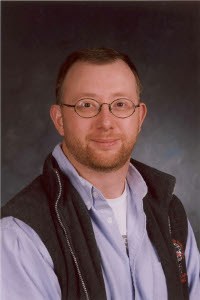Lakehead University is opening its doors and expertise to exploration companies.
Associate professor of geology Peter Hollings is often a frequent visitor to Northern Ontario mineral symposiums, chatting it up with mining execs on the benefits of collaborating with the Thunder Bay campus on student sponsored research.
He wants companies to consider using his students for the upcoming field season and to come onto the campus to use their laboratory of analytical equipment. Lakehead typically has a geology class of about 60 to 70 undergraduate students, with about 10-12 in the grad program.
A typical master's project runs for two years, during which time, a student will work for a company for two summers, and three to four months at a stretch. Much of what students do is a mix of very basic geology -- mapping and sampling -- but it's more precise and detailed analytical work that most companies don't have the personnel and the time to do.
"What we try to explain to (companies) is they're not going get instant answers," said Hollings. "The data we collect, as academics, is high-precision stuff and we're willing to wait a bit longer, than the quick turn-around that industry wants."
If a company puts up $50,000 for a master's project, Lakehead can usually land a matching government grant from agencies such as NSERC (Natural Sciences and Engineering Research Council) and IRAP (Industrial Research Assistance Program).
Having $100,000 in place is enough to do more advanced analytical research or put two students in the field.
A thesis project is often geared toward gaining a better understanding of the origins of a given mineral deposit. It's a combination of independent work and mentorship with a company geologist.
All of their company-sponsored master's program placements have exploration-oriented goals, said Hollings.
"If they want somebody to come and write a report in two weeks, they should be paying a consultant. What they'll get from a master's students is a more in-depth study, but they need to be more patient in waiting for the results."
Lakehead geology students find regular summer work at Goldcorp's Musselwhite Mine, with MetalCorp in Marathon, Williams Mine at Hemlo, Houston Lake Mining's West Cedartree gold project and with East West Resources Corp. on the Shebandowan greenstone belt, west of Thunder Bay.
The university also has a lab full of analytical equipment that's available for a commercial rate through Lakehead University Centre for Analytical Service (LUCAS) such as a scanning electron microscope and an X-Ray diffraction machine used for mineral identification.
"We can analyze the major and rare earth elements which are useful from an academic point of view," said Hollings.
Lakehead doesn't perform assay work and would prefer to leave that business up to the private labs in town. In recent months, Lakehead's geology department has been the recipient of donations to buy lab equipment.
CDN Resource Laboratories and Activation Laboratories Group (ACTLABS) each donated $10,000 for the school to buy student microscopes.
"We are very much interested in having collaborative relationships with juniors or prospectors, rather than bringing them in as a pure consulting basis," said Hollings.
The Lakehead geology graduate program goes back more than 30 years. Many Thunder Bay-based junior miners have Lakehead graduates.
"We have a pretty good track of training geologists that industry likes to hire. We're proud of that," said Hollings. "Most graduate students go on to do a PhD or work in the industry.
Those entering the exploration field end up working on the hard rock side of the industry, or with the Ontario Geological Survey in the Resident Geologist program.
Hollings anticipates the job market and summer placement may be slower this year. Companies are holding off making those decisions, but Hollings is optimistic things will turn. Many retiring geologists aren't being replaced by companies until there is some certainty in the markets.
In recent boom times, close to 100 per cent have found work in some area of geology.
Hollings jokes that last year some starting wages were "quite disturbingly high" at $60,000 to $70,000."
Despite a worldwide search for geologists, Hollings said many of his students have stayed put to finish out their education. "There's a recognition that having that four years honours degree is a good thing."
Compared to a teaching colleague in Australia, "we've been lucky we haven't lost any and our undergraduate numbers have gone up in the last couple of years."
http://lucas.lakeheadu.ca




